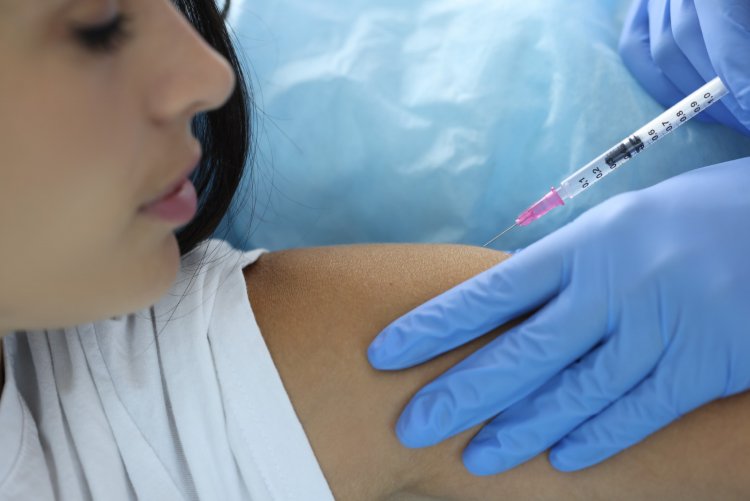The Tetanus Puzzle: Symptoms, Solutions, and Vaccination
Tetanus, caused by the neurotoxin produced by Clostridium tetani bacteria, is a serious infection that affects the nervous system. This bacterium is commonly found in soil, dust, and animal feces, and it can enter the body through wounds or cuts in the skin. Tetanus results in painful muscle contractions and spasms, often leading to serious complications if not treated promptly.

Symptoms of Tetanus
Symptoms of tetanus typically appear within 3 to 21 days after infection. Initial symptoms include stiffness and discomfort in the muscles of the jaw (lockjaw), followed by stiffness in the neck, abdomen, and other muscle groups. Additional symptoms may include difficulty swallowing, muscle rigidity, fever, and sweating. The condition can progress to severe muscle spasms and may lead to complications such as respiratory failure.
Diagnosis
Diagnosing tetanus is primarily based on clinical symptoms and the patient's history of recent wounds or injuries. Laboratory tests are not usually necessary for diagnosis but may be used to confirm the presence of Clostridium tetani bacteria or its toxins in certain cases.
Treatment
Treatment of tetanus involves several key steps aimed at controlling symptoms and preventing complications:
-
Wound Management: Cleaning and disinfecting wounds thoroughly to remove any dirt or foreign particles that may contain Clostridium tetani bacteria.
-
Tetanus Antitoxin: Administering tetanus immune globulin (TIG) to neutralize the effects of tetanus toxin circulating in the bloodstream.
-
Antibiotics: Intravenous antibiotics, such as penicillin or metronidazole, to eliminate the bacteria and prevent further toxin production.
-
Supportive Care: Providing supportive therapy to manage muscle spasms, including the use of muscle relaxants and sedatives. This also involves monitoring vital signs and ensuring adequate hydration and nutrition.
Tetanus Vaccination
Vaccination is the most effective way to prevent tetanus. The primary vaccines used are:
-
DTaP Vaccine: Given to children in a series of five doses, starting at 2 months of age, with booster doses recommended at 18 months and 4-6 years of age.
-
Tdap Vaccine: A booster vaccine recommended for adolescents and adults every 10 years. It includes tetanus toxoid along with diphtheria and acellular pertussis components.
Vaccination ensures that the body produces antibodies against the tetanus toxin, providing immunity against infection.
Complications
Complications of tetanus can be severe and may include:
-
Spasms and Rigidity: Persistent muscle spasms and rigidity can interfere with breathing and swallowing, leading to respiratory compromise.
-
Fractures and Injuries: Severe muscle contractions can cause fractures and other injuries, especially during spasms.
-
Cardiac Arrhythmias: Tetanus can affect the heart muscle, leading to irregular heartbeats and potentially cardiac arrest.
-
Pulmonary Embolism: In some cases, muscle spasms and immobility can increase the risk of blood clots forming in the legs, which may travel to the lungs causing a pulmonary embolism.
Prevention
Preventing tetanus involves a combination of vaccination and wound care:
-
Vaccination: Ensuring that children receive all recommended doses of DTaP vaccine and that adolescents and adults receive booster doses of Tdap vaccine every 10 years.
-
Wound Care: Prompt cleaning and disinfection of wounds, especially those contaminated with soil, dirt, or animal feces.
-
Awareness: Educating individuals about the importance of vaccination and seeking medical attention for deep or dirty wounds to prevent tetanus infection.
In conclusion, Tetanus remains a significant public health concern worldwide, particularly in areas with limited access to vaccination and healthcare resources. Vaccination programs have been highly effective in reducing the incidence of tetanus in many parts of the world. Prompt medical treatment, including wound care and administration of tetanus antitoxin, is crucial for improving outcomes in individuals infected with tetanus.
By maintaining high vaccination coverage and practicing appropriate wound management, the burden of tetanus can continue to be minimized, ultimately leading to fewer cases and improved health outcomes globally.
Disclaimer: The information provided in this article is for educational purposes only and should not be considered medical advice. If you have any health concerns or are experiencing symptoms, it is important to consult with a healthcare professional, such as a doctor or clinic, for proper diagnosis and treatment. Always seek the advice of your doctor or other qualified health provider with any questions you may have regarding a medical condition.
Hashtags: #Tetanus #Vaccination #HealthTips #PublicHealth
What's Your Reaction?





















